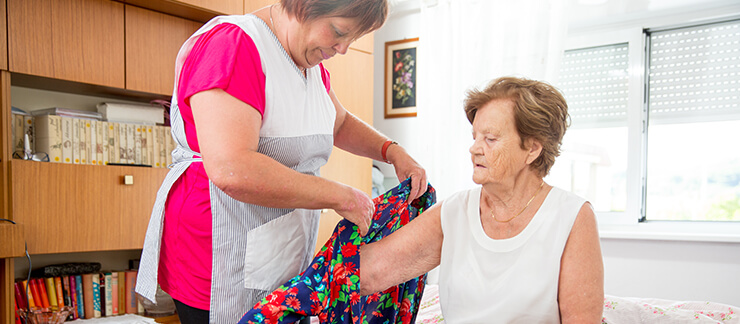
Isolation and Depression in the Elderly
Health and mobility issues may prevent seniors from socializing or engaging with others outside the home. For example, during the height of the coronavirus pandemic, many older adults avoided socializing due to their increased risk of developing severe COVID-19 complications. The lack of interaction may have increased the rate of health issues among the elderly.
Isolation is a big concern for seniors who live alone and can lead to an increase in depression, anxiety, dementia, and other health problems.
The first step to managing depression and isolation in the elderly is to know and understand the signs.
What are the Signs of Depression in the Elderly?
Feeling occasionally down, lonely, anxious, sad, or “empty” is normal. However, if these feelings persist for weeks or months, it could signify depression in seniors. Other signs of depression include:
- Feelings of hopelessness, guilt, worthlessness, or helplessness
- Irritability, restlessness, or having trouble sitting still
- Loss of interest in previously enjoyable activities
- Decreased energy or fatigue
- Moving or talking more slowly
- Difficulty with concentration, memory, or decision-making
- Changes in sleep habits, such as trouble falling asleep, waking up too early, or sleeping too much
- Changes in appetite, including eating too much or too little
- Thoughts of death or suicide, or suicide attempts
How to Reduce the Risk of Developing Depression?
Unfortunately, there is no surefire way to prevent seniors from developing depression. However, you can reduce their risk by taking steps to prevent social isolation.
Keeping a senior active and engaged might seem challenging, especially if you live far away or if your loved one is living with health, cognitive, or mobility limitations. However, several strategies can help prevent isolation in seniors and encourage social contact, including:
- Calling them on the phone or via video chat
Regular contact with loved ones, even through phone calls, FaceTime, or Zoom can help an older adult maintain social connections. If your loved one struggles with technology, a professional caregiver can help with set-up and troubleshooting.
- Making them feel needed and valued
Depression in older adults can sometimes stem from feeling unwanted or not valued. Ask for input or assistance from your loved one — even if they live far away. They will thrive and appreciate the opportunity to assist.
- Engaging in favorite activities together
Find activities you both enjoy, and plan to participate in together. Stay connected through regular visits, weekend dinners, baking cookies, card games, evening walks, or grandchildren’s sporting events. These activities can go a long way toward preventing isolation and depression.
- Creating opportunities for companionship
Encourage your older loved one to safely engage in activities with community groups, religious organizations, and senior centers to provide opportunities to meet new friends and socialize. A Visiting Angels caregiver can assist by providing transportation to social events and can also provide one-on-one companionship at home.
Visiting Angels Can Provide Companion Care
Professional companion care can help manage depression and isolation in seniors. Visiting Angels’ senior care offers companionship at home to help your loved one maintain meaningful social connections in the community. Further, an in-home caregiver can monitor and report any indications of depression.
Contact a local Visiting Angels’ home care office today to schedule a no-cost, no-obligation consultation if interested in companion care services.


